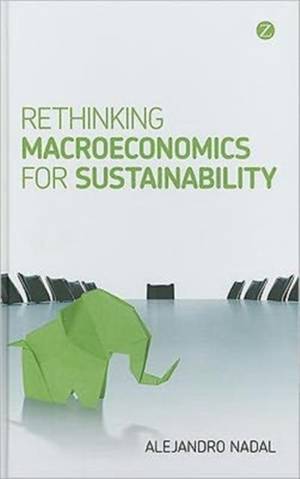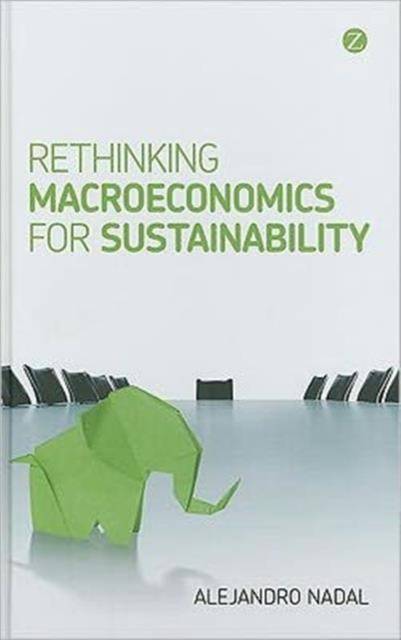
- Retrait gratuit dans votre magasin Club
- 7.000.000 titres dans notre catalogue
- Payer en toute sécurité
- Toujours un magasin près de chez vous
- Retrait gratuit dans votre magasin Club
- 7.000.0000 titres dans notre catalogue
- Payer en toute sécurité
- Toujours un magasin près de chez vous
97,95 €
+ 195 points
Description
Macroeconomic policies have devastating effects on the environment. They shape the economic processes that drive deforestation, soil erosion, the exhaustion of living marine resources, greenhouse gas emissions, and the massive loss of biodiversity. Despite this, the vital connection between macroeconomic policies and the environment has thus far received little attention by the academic and the policy-making communities.
Rethinking Macroeconomics for Sustainability reveals the linkages between monetary, financial and fiscal policies, and the environmental degradation that threatens the planet's biosphere. In doing so, it examines the complex lines of transmission from policy priorities all the way down to the effects at the local level, as well as analyzing the deep-seated relationship between macroeconomic policy models and their impacts on growth, peoples' livelihoods and the environment. Besides exploring the relation between macroeconomic and climate change policies, as well as efforts to 'green' the world economy, the book considers five key case studies in Latin American economies. Going beyond this, it also sets out specific policy recommendations, both at the national and international levels. All this is based on the incontrovertible premise that macroeconomic policies must to be redesigned in order to attain long-term sustainability objectives, and that monetary and fiscal policies are as important for environmental stewardship as they are for growth and prosperity.Spécifications
Parties prenantes
- Auteur(s) :
- Editeur:
Contenu
- Nombre de pages :
- 235
- Langue:
- Anglais
Caractéristiques
- EAN:
- 9781848135055
- Date de parution :
- 01-01-11
- Format:
- Livre relié
- Format numérique:
- Ongenaaid / garenloos gebonden
- Dimensions :
- 140 mm x 216 mm
- Poids :
- 376 g

Les avis
Nous publions uniquement les avis qui respectent les conditions requises. Consultez nos conditions pour les avis.






